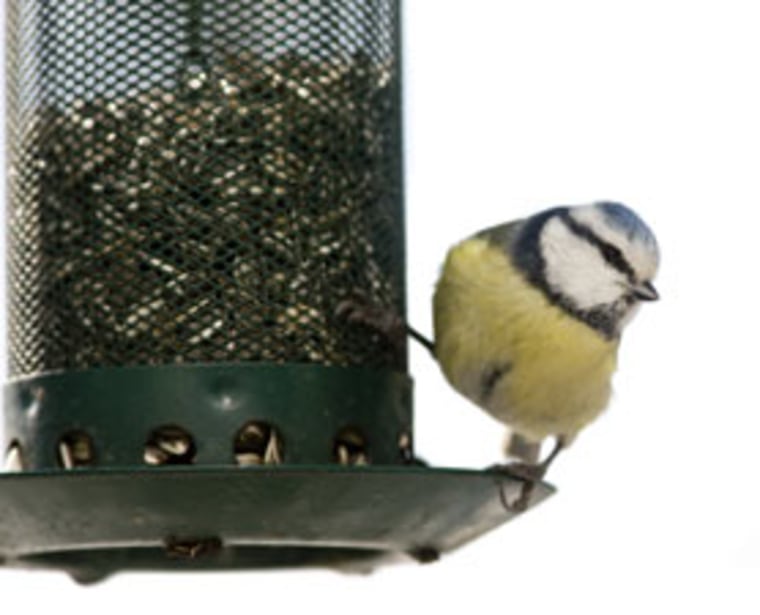As temperatures dip low in the Northern Hemisphere's deep midwinter, many birds are no doubt feasting on the seeds and suet hanging outside many of our homes. More than 40 percent of U.S. households and nearly 50 percent of U.K. households feed birds, according to estimates.
But two new studies suggest that feeding birds at bird feeders in the spring can influence behavior in surprising ways. While experts agree that people should continue their beloved pastime of feeding birds at backyard feeders, they also suggest that bird lovers should take a hiatus in feeding birds during the breeding season.
One of the studies looked at great tits and blue tits living in woods in England while the other considered great tits living in a test site bordering suburban Oslo, Norway. Both studies fed some birds and left others to find their own food.
The U.K. study, published in Physiological Ecology by James Reynolds of the University of Birmingham and colleagues, fed birds through the breeding season, from early March through the end of July.
As with many other studies of bird feeding, the fed birds laid their eggs earlier than unfed birds and incubated them for less time before they hatched.
However, to the researchers' surprise, compared with the unsupplemented birds, birds fed at feeders had significantly reduced clutch sizes. One of the two types of birds studied, the blue tits, also had a reduced percentage of eggs hatch. Taken together, the supplemented birds had significantly reduced brood sizes.
"I don't know of any other study that has clearly demonstrated a decrease in clutch size with food supplementation," said Thomas Martin of the University of Montana, Missoula.
"We suspect they are spending too much effort in defending their food source and not enough in breeding," Reynolds said.
Feeding may still lead to a net neutral effect, or even an advantage, if the smaller broods are more likely to survive. Indeed, Reynold's group's follow-up work hints that at this site, that may be true.
Meanwhile in the Norwegian study, researchers found that when they provided great tits with supplemental food for two weeks during the early breeding season, the birds delayed their morning chorus — their first tweets of the day — by an average of 20 minutes.
"The dawn chorus is a particularly sensitive time of singing," said lead author Valentin Amrhein of the University of Basel, Switzerland. Past experiments with related species have shown that higher-ranking males tend to sing earlier in the morning and have more mating partners, Amrhein said.
"Accordingly, if only the best and most energetic males can afford to start singing early, supplementary feeding should lead to an earlier start of singing," he said. "It really came as a surprise to us and to many other researchers, because it was the opposite of what we have seen from studies (that supplemented for only a few days)."
Amrhein thinks a similar cause to the U.K. study may be at the root of his group's findings: "I still think it is very likely that territorial males simply get distracted by great tits and other birds species feeding in their territory."
Reynolds notes that his and Amrhein's results may be site-specific and need to be replicated across the broader landscape and for other species. But the findings demonstrate that supplementary feeding can have an influence on breeding that might not be predictable, Amrhein said.
"It's clear that it interferes with breeding behavior one way or another," he said. "It's not clear whether it is detrimental or beneficial."
"My advice would be that people should feed birds in their gardens, because it is such a great opportunity to become familiar with the birds, particularly for children, and because it can also save the life of birds particularly in strong winters," he added in a view echoed by several other researchers. "However, I would suggest that people do not necessarily continue feeding until the breeding period, i.e. that they stop feeding by the end of March or at the latest when the snow is gone."
Researchers recommended that people feed a variety of seeds and suet, and that they not feed human food such as processed breakfast cereal. Amrhein also noted that feeders should be put away from cats.
